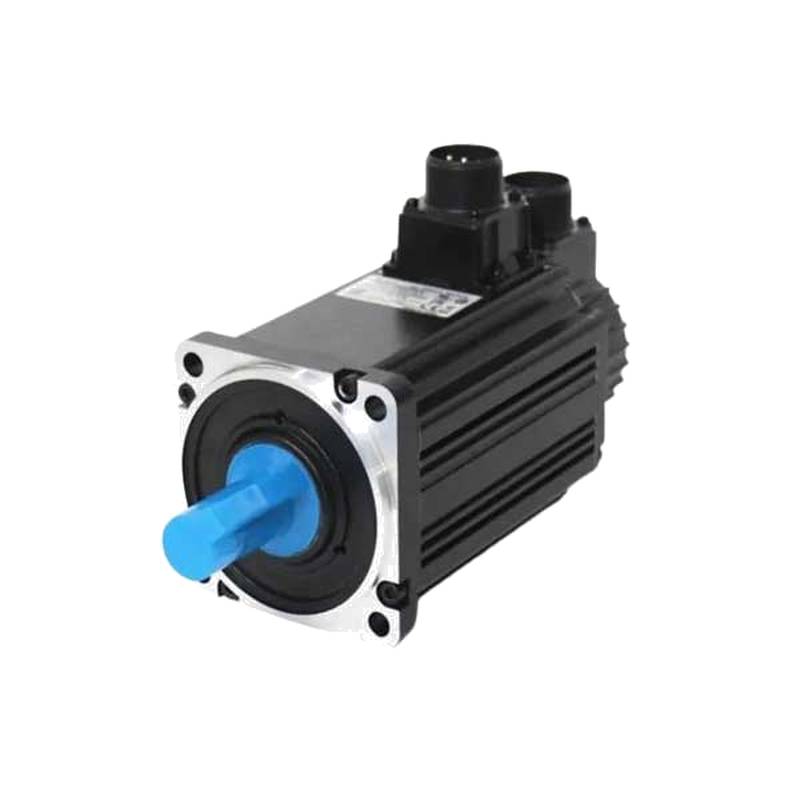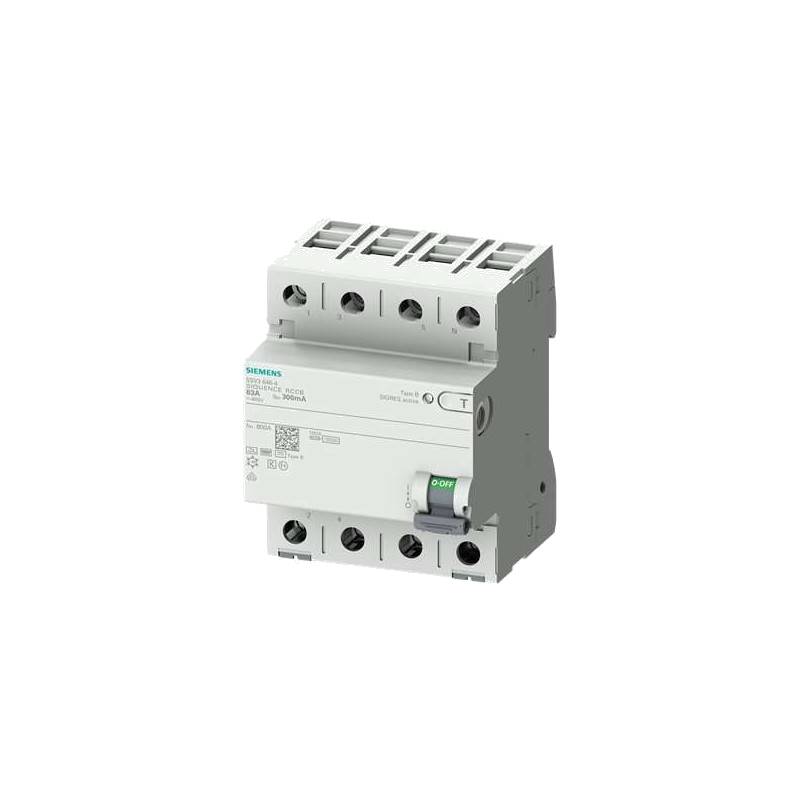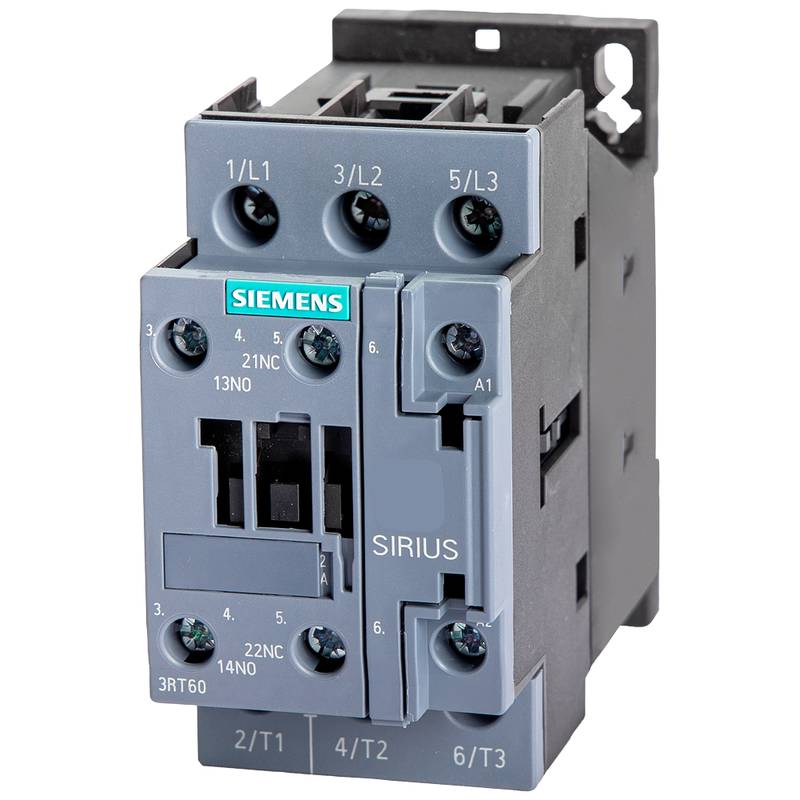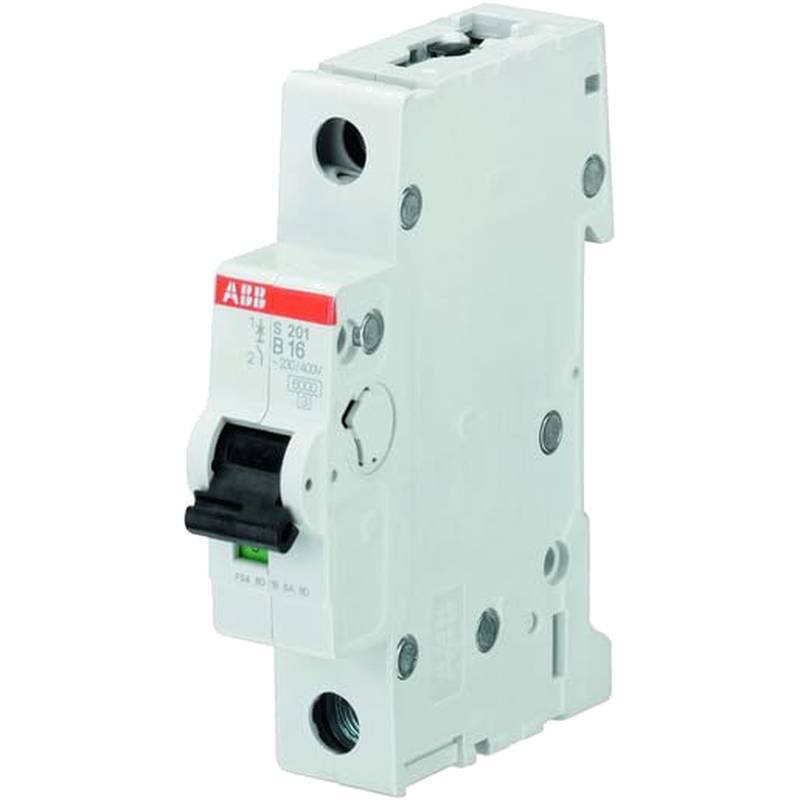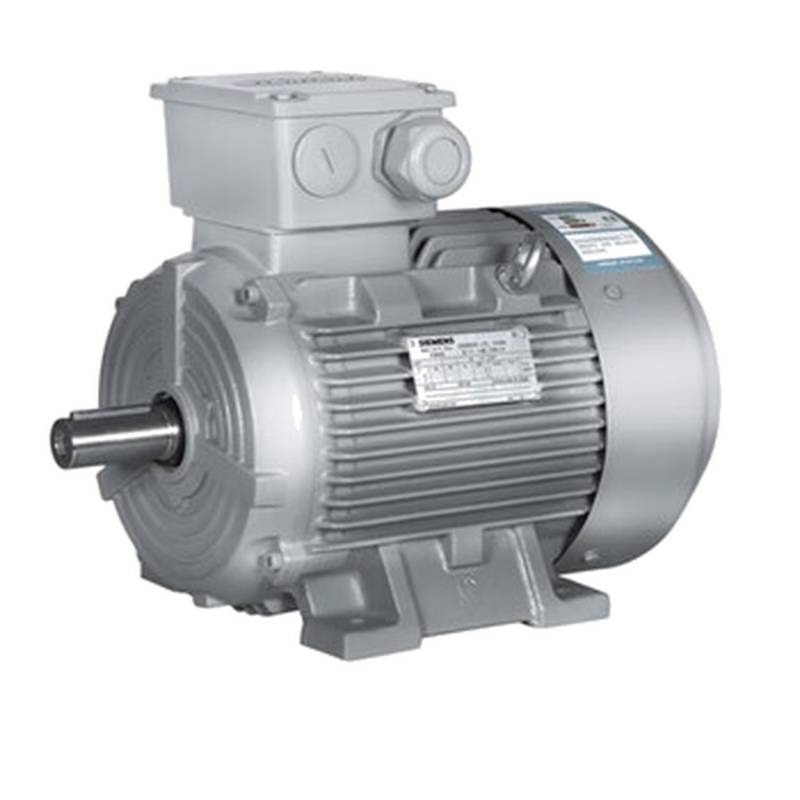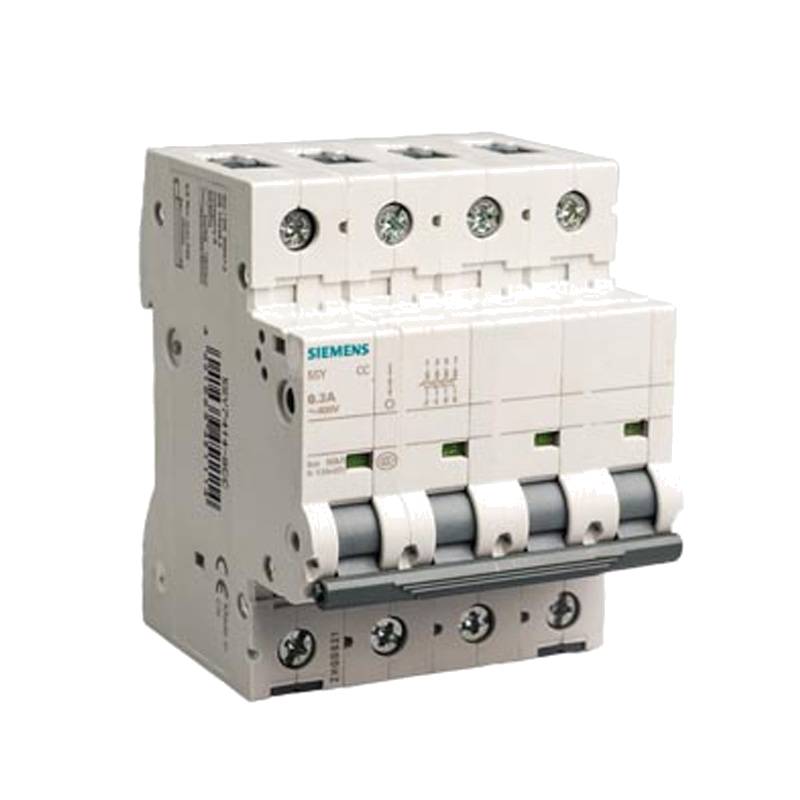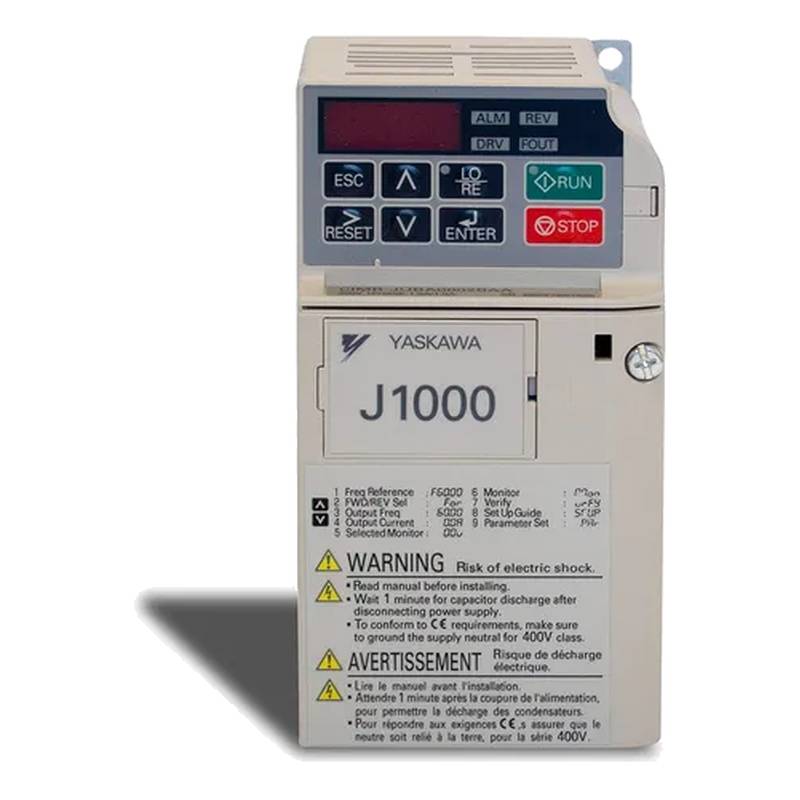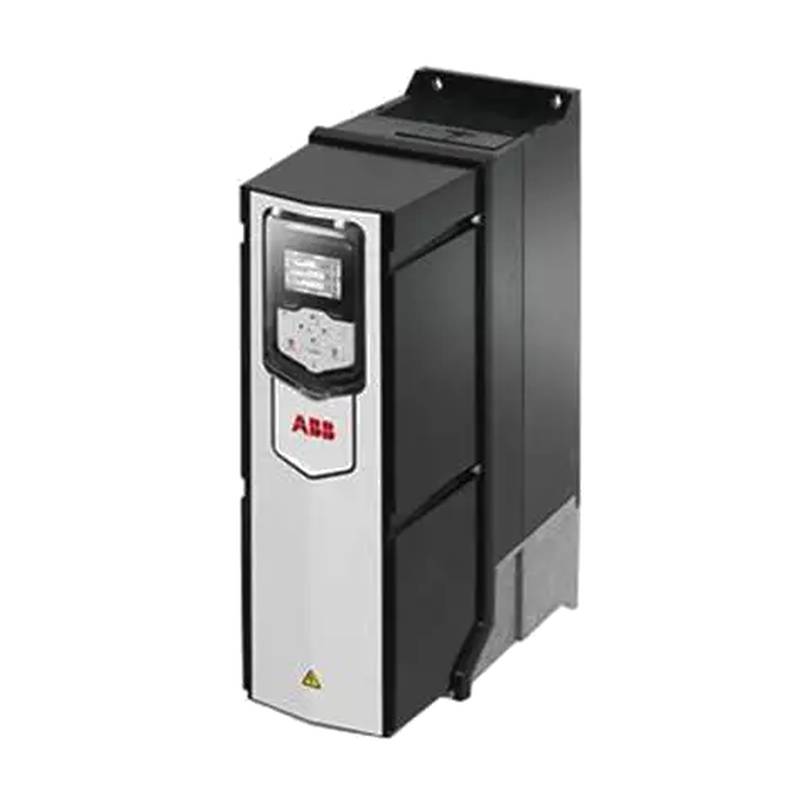
The Delta ECM-B3M-C20807RS1 B3 High Inertia Servo Motor stands as a robust solution for demanding industrial automation tasks, offering superior performance characteristics critical for precision motion control. This motor boasts a high inertia design, making it exceptionally well-suited for applications requiring smooth acceleration and deceleration, as well as the precise handling of significant inertial loads. Key advantages include its exceptional torque output, robust construction for extended operational life in harsh environments, and advanced control capabilities that ensure high accuracy and repeatability. With a rated voltage of 208V AC and a rated speed of 1000 RPM, the ECM-B3M-C20807RS1 is engineered to meet stringent performance benchmarks.
Product Specifications
| Feature | Specification |
| :---------------- | :-------------------------------- |
| Model | ECM-B3M-C20807RS1 |
| Series | B3 High Inertia Servo Motor |
| Rated Voltage | 208V AC |
| Rated Speed | 1000 RPM |
| Rated Torque | 69.17 Nm |
| Peak Torque | 207.51 Nm |
| Rated Output | 7.25 kW |
| Motor Frame Size | 180 |
| Brake | With Brake |
| Encoder | 20-bit Incremental Encoder |
| Protection Class | IP65 |
| Insulation Class | Class F |
Core Features & Market Positioning
The Delta ECM-B3M-C20807RS1 distinguishes itself in the competitive servo motor market through its inherent high inertia design, which is a significant differentiator for applications demanding the stable management of large rotating masses. This characteristic allows for more predictable and controlled motion profiles, reducing vibrations and improving settling times compared to standard inertia motors. The integration of a 20-bit incremental encoder ensures exceptionally high resolution and positional accuracy, crucial for sophisticated automation tasks. Its robust construction, evidenced by the IP65 protection class, signifies resilience against dust and water ingress, positioning it as a reliable choice for challenging industrial environments. Delta's commitment to advanced motor technology is evident, offering a compelling value proposition for sectors prioritizing precision, durability, and operational stability.
Key Application Scenarios
The inherent high inertia of the Delta ECM-B3M-C20807RS1 servo motor makes it an ideal candidate for a wide array of industrial automation applications where smooth, controlled movement of substantial loads is paramount. This includes its prominent use in robotic arm articulation, particularly for joints handling heavy payloads or requiring precise, damped movements, and in large-scale material handling systems such as automated storage and retrieval systems (AS/RS) for stable payload positioning. Furthermore, its capabilities extend to precision machining and grinding operations, where maintaining consistent speed and torque under varying loads is critical for surface finish and dimensional accuracy. The motor is also well-suited for the paper and textile industries, where the management of large rollers and continuous web processing demands high inertia for consistent tension and speed control.
Practical System Integration Guidance
Integrating the Delta ECM-B3M-C20807RS1 into existing automation systems requires careful consideration of its power and control requirements. The motor is designed to operate with Delta's ASD-B3 series servo drives, ensuring optimal performance and system compatibility. Proper wiring of the power, encoder, and brake signals is essential for reliable operation; always consult the official Delta documentation for precise pin assignments and recommended cable specifications to prevent signal interference and ensure safety. For commissioning, precise tuning of servo parameters, such as proportional, integral, and derivative (PID) gains, is critical to leverage the motor's high inertia effectively. Initial setup often involves a motor auto-tuning function within the compatible Delta servo drive, which dynamically adjusts parameters based on the connected motor and load characteristics, thereby optimizing performance and stability without manual intervention.
Operation and Risk Mitigation
Operating the Delta ECM-B3M-C20807RS1 servo motor necessitates adherence to safety protocols to mitigate potential risks. Ensure that all electrical connections are properly insulated and grounded, and that the motor's braking system is correctly wired and tested to engage reliably during power loss or emergency stops. Overload conditions can lead to motor overheating and premature failure; therefore, it is crucial to operate the motor within its specified torque and speed limits as detailed in the product specifications. Monitoring motor temperature via compatible servo drives is a recommended practice. Common troubleshooting may involve checking encoder feedback for signal integrity or verifying drive parameters if unexpected behavior or error codes are encountered; refer to the servo drive's manual for specific fault code interpretations and corrective actions.
Scalability & Long-Term Value
The Delta ECM-B3M-C20807RS1 servo motor offers significant long-term value through its compatibility with Delta's broader automation ecosystem, facilitating scalable solutions. Its integration with Delta's programmable logic controllers (PLCs) and human-machine interfaces (HMIs) allows for seamless incorporation into advanced manufacturing control systems. For enhanced industrial internet of things (IIoT) capabilities, data from the servo motor and its drive can be collected and analyzed, enabling predictive maintenance and process optimization. The B3 series is designed for robustness, ensuring a long operational lifespan, and compatibility with evolving drive technologies within the Delta product line provides a clear upgrade path, safeguarding investment and adapting to future automation demands.
Frequently Asked Questions
What are the primary benefits of a high inertia servo motor like the ECM-B3M-C20807RS1?
High inertia motors excel at managing large rotating masses smoothly. This characteristic is vital for applications demanding stable acceleration and deceleration profiles, significantly reducing overshoot and settling times. Such controlled motion prevents jerky movements, enhancing overall system precision and operational stability.
These motors are engineered to absorb and dissipate rotational energy effectively. This capability is crucial for applications where external forces might try to alter the intended motion, providing a damping effect. Consequently, they are ideal for tasks requiring consistent velocity under varying load conditions.
The inherent stability offered by high inertia makes these motors suitable for delicate operations. They provide the necessary counteraction against sudden changes, ensuring the automation process remains within precise tolerances. This translates to improved product quality and reduced waste in manufacturing.
How does the 20-bit encoder on the ECM-B3M-C20807RS1 enhance performance?
A 20-bit encoder provides an exceptionally high resolution for positional feedback. This allows for extremely precise movement control, essential for intricate automation tasks. Users benefit from finer adjustments and more accurate positioning capabilities.
This high resolution translates directly into improved accuracy and repeatability of motion. The servo system can discern and respond to minute changes, ensuring consistent performance across multiple cycles. This is critical for quality-sensitive manufacturing processes.
The detailed feedback from a 20-bit encoder also aids in advanced control algorithms. It enables sophisticated motion profiles and faster response times, optimizing system dynamics. This leads to increased throughput and more efficient operation.
What types of industrial machinery benefit most from the ECM-B3M-C20807RS1's high inertia?
Robotics, especially for handling heavy payloads, greatly benefits. The motor's inertia ensures smooth articulation and stable manipulation of large objects. This prevents jarring movements, protecting both the robot and the payload.
Automated storage and retrieval systems (AS/RS) are another key application. The motor's ability to manage inertial loads ensures precise positioning of goods in high-density warehouses. This leads to efficient space utilization and swift retrieval operations.
Precision machining and grinding equipment also rely on this characteristic. Maintaining consistent speed and torque under varying cutting or grinding forces is crucial for surface finish. High inertia contributes to this required stability.
Can the ECM-B3M-C20807RS1 be integrated with non-Delta servo drives?
While technically possible in some scenarios, integrating with non-Delta drives is not recommended. Delta's drives are optimized to fully utilize the motor's capabilities and features. This ensures peak performance and system reliability.
Using a non-Delta drive may lead to suboptimal performance or compatibility issues. The unique characteristics of the B3 series motors are best managed by their intended drive counterparts. This guarantees accurate feedback and control.
For guaranteed operation, safety, and warranty adherence, always use compatible Delta servo drives. Consult Delta's technical documentation for the precise list of supported drives for the ECM-B3M-C20807RS1. This ensures a seamless integration.
What is the significance of the IP65 protection class for this servo motor?
An IP65 rating signifies robust protection against dust ingress. This ensures the motor operates reliably even in environments with significant airborne particulate matter. It prolongs the motor's lifespan in manufacturing settings.
This rating also indicates resistance to water jets from any direction. This makes the motor suitable for washdown applications or areas prone to moisture. It enhances operational flexibility in various industrial conditions.
The IP65 classification means the motor is well-sealed against environmental contaminants. This reduces the risk of internal damage and electrical faults caused by external elements. It is a critical feature for harsh industrial deployments.
How does the brake integrated into the ECM-B3M-C20807RS1 function?
The integrated brake acts as a holding brake when power is removed from the motor. It mechanically locks the motor shaft to prevent movement, ensuring the load remains stationary. This is a crucial safety feature.
This brake engages automatically during power outages or emergency stops. It provides a fail-safe mechanism to maintain positional integrity of the axis. This prevents accidental drops or uncontrolled motion of the attached load.
Proper wiring and periodic testing of the brake system are essential. Ensure the brake is correctly connected to a reliable power source or control signal. Regular checks guarantee its functionality in critical situations.
What are the typical torque specifications for this high inertia servo motor?
The ECM-B3M-C20807RS1 offers a rated torque of 69.17 Nm for continuous operation. This indicates the sustained torque the motor can deliver without overheating. It is crucial for defining its working capacity.
For dynamic movements and overcoming initial resistance, the motor provides a peak torque of 207.51 Nm. This higher value allows for rapid acceleration and deceleration of inertial loads. It ensures agile performance during transient conditions.
These torque values, combined with its high inertia, make it suitable for demanding applications requiring significant rotational force. Understanding both rated and peak torque is essential for proper application sizing and system design.
What is the recommended servo drive for the Delta ECM-B3M-C20807RS1?
The Delta ASD-B3 series servo drives are the recommended choice for the ECM-B3M-C20807RS1 servo motor. This series is specifically designed to optimize the performance of Delta's B3 high inertia servo motors. It ensures seamless integration and full feature utilization.
Using the compatible ASD-B3 drive allows for features like advanced auto-tuning and precise parameter configuration. This maximizes the motor's inherent high inertia characteristics and control accuracy. It simplifies system setup and commissioning.
For specific model compatibility within the ASD-B3 series, always refer to Delta's official product documentation. This ensures you select the drive that precisely matches the motor's power and control requirements for optimal operation.
How does the high inertia of this motor affect system tuning?
High inertia means the motor has more mass to accelerate and decelerate. This requires careful adjustment of servo drive parameters, particularly PID gains, for optimal performance. Aggressive tuning can lead to instability or oscillations.
Tuning a high inertia system typically involves a more conservative approach to gain settings. The auto-tuning functions in compatible Delta drives are invaluable here. They can analyze the motor-load dynamics and set appropriate parameters.
Understanding the motor's inertia value is key for advanced tuning. This allows engineers to predict system response and make informed adjustments. Proper tuning ensures smooth, precise motion without compromising speed or accuracy.
What are the implications of the Class F insulation for this motor?
Class F insulation signifies that the motor can withstand a maximum operating temperature of 155°C. This provides a higher thermal margin compared to lower insulation classes. It allows for operation under more demanding conditions.
This increased thermal capability contributes to motor longevity and reliability. It offers better resistance to thermal stress, reducing the risk of insulation breakdown over time. This is crucial for industrial environments with fluctuating ambient temperatures.
While Class F offers enhanced thermal performance, it's still critical to operate within the motor's rated environmental and operational limits. Monitoring motor temperature via the servo drive remains a best practice for preventing premature failure.














